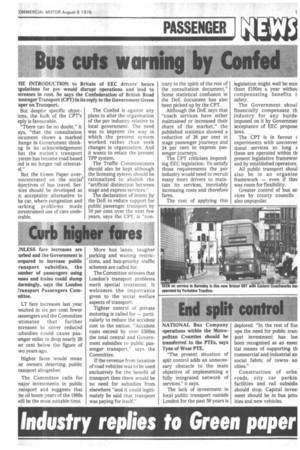Curb higher fares
Page 21

If you've noticed an error in this article please click here to report it so we can fix it.
JNLESS fare increases are !urbed and the Government is prepared to increase public ransport subsidies, the 'umber of passengers using oases and trains could stump darmingly, says the London rransport Passengers Comnittee.
LT fare increases last year vsulted in six per cent fewer )assengers and the Committee tstimates that further ncreases to cover reduced tubsidies could cause pastenger miles to drop nearly 20 )er cent below the figure of wo years ago.
Higher fares would mean :ar owners deserting public ransport altogether.
The Committee calls for najor investments in public ,ransport and suggests that he oil boom years of the 1980s will be the most suitable time. More bus lanes, tougher parking and waiting restrictrons, and bus-priority traffic schemes are called for.
The Committee stresses that London's transport problems merit special treatment. It welcomes the importance given to the social welfare aspects of transport.
Tighter control of private motoring is called for — particularly to reduce the accident cost to the nation. "Accident costs exceed by over E30Om the total central and Government subsidies to public passenger transport," says the Committee.
If the revenue from taxation of road vehicles was to be used exclusively for the benefit of transport then there would be no need for subsidies from elsewhere "and it could legitimately be said that transport was paying for itself."




















































































